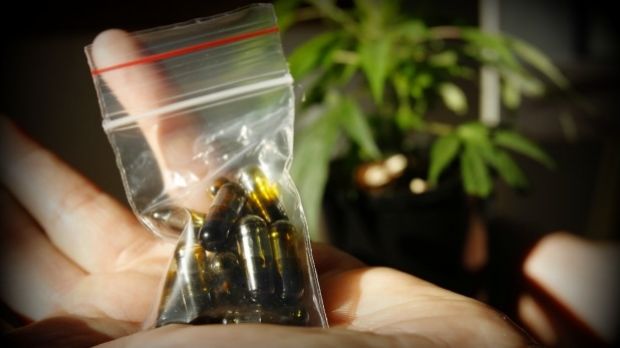
Professor David Penington argues the use of cannabis for pain relief and treatment should be determined through a discussion between doctors and their patients.
Governments including the ACT have contributed to confusion over the use of medical marijuana by pursuing clinical trials of the substance, according to University of Melbourne expert Professor David Penington. The longtime advocate for medicinal cannabis and former chair of the Hawke government’s national advisory committee on AIDS has used a journal article to argue that the upcoming New South Wales-led clinical trial, backed by the Commonwealth government, had been characterised by extreme views from both sides.
In an issue of the Medical Journal of Australia released on Monday, the former National Health and Medical Research Council member argues the use of cannabis for pain relief and treatment should be determined through an informed discussion between doctors and their patients.
“The clinical trial proposed, if successful, presumes that cannabis would then be approved and regulated as a pharmaceutical substance,” Professor Penington wrote.
“Cannabis can never be a pharmaceutical agent in the usual sense for medical prescription, as it contains a variety of components of variable potency and actions, depending on its origin, preparation and route of administration.
“Consequently, cannabis has variable effects in individuals. It will not be possible to determine universally safe dosage of cannabis for individuals based on a clinical trial.”
The comments come less than two weeks before the close of public submissions for an ACT Legislative Assembly considering proposed legislation introduced by Greens minister Shane Rattenbury that would allow terminally and chronically ill Canberrans to grow marijuana and use the drug to alleviate their pain and symptoms.
Public hearings are planned for early 2015 ahead of the committee’s report to the ACT Government.
Already 23 states in the United States, Canada, Israel, Holland and the Czech Republic permit medicinal cannabis use and Profession Penington argues there is no “rational basis for the view that weakening prohibition to permit use for medical conditions would lead to a surge in general use”.
He also argues there is no evidence to suggest cannabis causes schizophrenia or is highly addictive and calls for approved users to be allowed to grow up to 10 plants for personal use.
“If legislation permits sale to people suffering from a condition diagnosed by a doctor and scheduled in legislation, there should be no problem with provision of cannabis by this route without waiting for completion of a clinical trial”, Professor Penington wrote.
Mr Rattenbury welcomed the comments and said clinical trials in Australia were unnecessary.
“The observation of medical practitioners being involved is something I completely concur with,” Mr Rattenbury said.
“For different individuals, different medications will be most suitable. My argument when it comes to the medical use of cannabis is that for some people, traditional medicines will be the best response. For others, using cannabis will be a better response and they should have that opportunity.”
Medical cannabis, including in an oil form, can be used to alleviate chronic pain and treat symptoms such as nausea. Patients undergoing chemotherapy, suffering seizures and with conditions including multiple sclerosis have reported relief from cannabis.
“I remain concerned that trials will be a way of deferring action,” Mr Rattenbury said.
“There are people who need access to this treatment now that should have access now and if they seek it, they are currently doing something illegal. My strong preference, and my belief, is that we should move straight to a regulated system for the medical use of cannabis.”
The ACT is in discussions with the New South Wales government about involvement in the trial.
In November, Greens Senator Richard Di Natale introduced a cross-party bill into the federal Parliament that would make medicinal cannabis available for people who need it nationally.
Mr Rattenbury said he was aware of a large number of submissions to the ACT inquiry ahead of the February 13 deadline.
